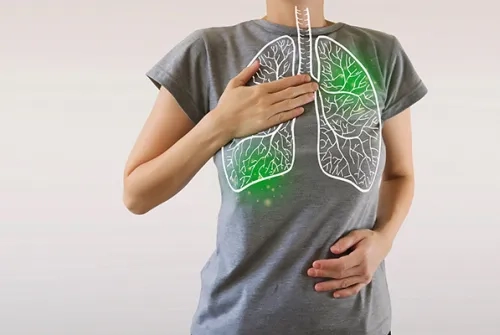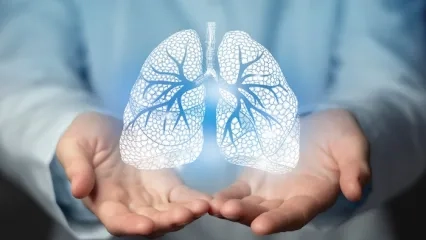Alo Yeditepe
Alo Yeditepe
What is Desert Dust? Harms of Desert Dust
Those with Respiratory Sensitivity, Beware of Desert Dust! Millions of tons of desert dust enters the air every year and continues to affect a wide geography, including our country.
Experts draw attention to the increase especially in the current week and explain that this situation may also have an impact on our health. Yeditepe University Koşuyolu Hospital Chest Diseases Specialist Dr. Lecturer Seha AKDUMAN made important warnings, stating that especially those with respiratory sensitivities should be careful during this period.
What is Desert Dust?
Our expert informed that Turkey is located in the Eastern Mediterranean basin and is exposed to the dust of the world's two largest dust sources, the Sahara and the Arabian Deserts, and that health problems arise by inhaling fine dust particles that are generally carried by winds from desert regions. When these dusts, which mostly contain mineral and organic substances, enter the respiratory tract, they can cause different problems at many points, from the lungs to the respiratory tract, from the cardiovascular system to the eyes.
Who are in the Risk Group due to Desert Dust?
Our Chest Diseases Specialist explains that babies, children, the elderly, people with asthma, bronchitis, emphysema, heart disease and diabetes are in the group most affected by this situation and said: "Asthma attacks and breathing difficulties may occur in patients, as well as chronic respiratory and heart diseases, especially in those who are exposed to dust for a long time." "It can be seen," she said.
Our expert explains that the excessive amount of particles in the air we breathe directly affects the respiratory system and says, “It can increase symptoms, especially in people with respiratory diseases such as asthma. "Dust particles can irritate the respiratory tract and cause symptoms such as cough, wheezing and shortness of breath," she said.
What are the effects of desert dust on health?
Pointing out that this situation created by desert dust also poses a risk for asthma and COPD patients, which are very common in the society, our expert continued her words as follows: “We observe that the complaints of these patients are also increasing. Complaints such as shortness of breath, cough and phlegm increase, and control of the disease becomes more difficult. "Due to exacerbation, the need for rescue medication may also increase." The Chest Diseases Specialist pointed out that newly diagnosed asthma patients may also be seen due to the increase in the number of particles in the air due to desert dust.
What Are the Dangers of Desert Dust?
Desert dust, due to winds, can travel over long distances and cause damage in various regions worldwide. In addition to its effects on health, desert dust can also have environmental and climatic consequences. This issue can cause serious problems, especially for individuals with respiratory conditions such as COPD, asthma, and bronchitis. Dust particles that accumulate in the lungs can make breathing difficult and trigger allergic reactions. In addition to respiratory problems, dust particles that enter the eyes can cause itching, burning, and redness. Similarly, on the skin's surface, dryness, irritation, or itching can occur.
Who Does Desert Dust Affect?
Who Does Desert Dust Affect? The fact that the breathing air is not in ideal conditions affects not only patients but also the whole society. Desert dust creates the basis for complaints ranging from mild irritation in the bronchi and respiratory system to severe cough, phlegm and shortness of breath. Our expert points out that the risk is higher for people with chronic lung disease such as asthma, COPD, and beonchiectasis, as well as smokers, allergic individuals, children, and those who spend a long time outdoors. Our expert even says that this situation may have permanent negative effects and said, “Asthma may begin in people with mild bronchial sensitivity due to the effect of desert dust. "In addition, the need to reuse medication may increase in patients who are followed without medication." She says.
What are the Ways to Protect from Desert Dust?
Stating that especially chronic lung and heart patients should be more careful during this period, our expert explains the following about the precautions to be taken for protection: “Those who do not want to be negatively affected by these meteorological events, especially this group we mentioned, should limit the time spent outdoors. "In addition, chronic lung patients should take care to use their medications regularly and maintain ventilation filters will help reduce the negative effects that may occur."
Our specialist said that people who have complaints such as new onset cough, shortness of breath, phlegm, wheezing, palpitations, feeling of pressure in the chest should consult a pulmonologist without delay in order to prevent the problem from progressing and causing permanent damage.
About
Faculty and Year of Graduation:
Gazi University Faculty of Medicine, 2007
”
See Also
- How to Cleanse Your Lungs?
- Is Breathing Air Dangerous in Fires?
- What is Electronic Cigarette Disease (EVALI)? EVALI Symptoms and Treatment
- What is COPD? Symptoms and Treatment of COPD
- Long Journeys Increase the Risk of Embolism!
- What Asthma and COPD Patients Should Pay Attention to When Using Air Conditioning!
- What is Allergy? What are the Symptoms of Allergy?
- Lung Cancer Screening Age
- What is Good for Cough? How to Cure Cough?
- Lung Cancer Symptoms and Treatment
- 10 Ways to Have a Sound Sleep in the Heat
- What Should Asthma Patients Be Cautious About?
- Does Poor Quality Sleep Increase The Risk of Asthma?
- What Causes Insomnia, Diagnosis and Treatment
- 9 Common Misconceptions About COPD
- Causes, Symptoms, and Treatment of Asthma
- Allergy and Asthma During Pregnancy
- It Is Aimed to Eliminate Tuberculosis Worldwide By 2030
- Lung Patients Should Not Stop Their Medications
- 4 Significant Preliminary Symptoms of Lung Cancer
- How Does Acid Rain Affect Human Health?
- The Slowing Traffic in Istanbul Increases the Risk of Cancer!
- The American Cancer Society Has Announced; The Age of Screening For Lung Cancer Has Decreased
- Hidden Lung Cancer Cases Revealed in Tomographs Taken Due to Coronavirus
- Obesity is Both a Cause and Consequence of Sleep Apnea
- Asthma and COPD Attack Season Begins
- Lung Cancer
- Snoring and Its Treatment
- Using Antipyretics Uncontrolled Can Hide Pneumonia Symptoms
Alo Yeditepe




